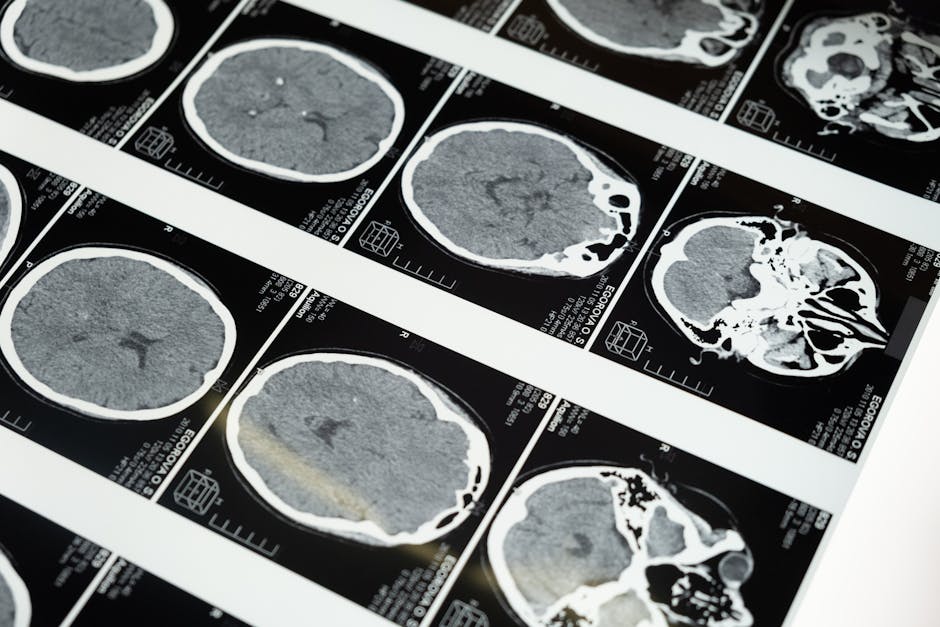What Happens During a Doctor’s Visit for a Head Injury? 🤕
Head injuries can be scary, whether it’s a minor bump or something more serious. If you or a loved one needs to visit the doctor after a head injury, here’s what you can expect. Understanding the process can help ease anxiety and ensure you get the care you need.
Table of Contents
1. Introduction
2. Initial Assessment 🩺
3. Diagnostic Tests and Imaging 📸
4. Treatment and Follow-Up 💊
5. Conclusion
6. FAQs
Initial Assessment 🩺
When you first arrive at the doctor’s office or emergency room, a healthcare professional will conduct an initial assessment. This step is crucial in determining the severity of the injury and the appropriate next steps.
The assessment typically includes:
1. Medical History: The doctor will ask questions about how the injury occurred, any symptoms you’re experiencing, and your medical history.
2. Physical Examination: The doctor will perform a physical exam to check for visible signs of injury like swelling, bruising, or bleeding.
3. Neurological Evaluation: This involves checking your vision, hearing, balance, coordination, and reflexes to assess the impact of the injury on your nervous system.
Diagnostic Tests and Imaging 📸
If the initial assessment indicates a need for further investigation, the doctor may recommend diagnostic tests. These can provide a clearer picture of what’s happening inside your head.
1. CT Scan: This imaging test can quickly reveal fractures or bleeding in the brain.
2. MRI: An MRI offers detailed images of the brain and is used to detect more subtle injuries.
3. X-rays: Though less common, X-rays might be used to check for skull fractures.
Treatment and Follow-Up 💊
Once the doctor has a full understanding of your injury, they will discuss the treatment options with you. These could range from simple rest and observation to more intensive interventions.
1. Rest and Monitoring: For mild injuries, rest and monitoring your symptoms at home may be sufficient.
2. Medication: Pain relievers or medications to reduce swelling might be prescribed.
3. Surgery: In severe cases, surgery could be necessary to address issues like bleeding or pressure on the brain.
Follow-up appointments are crucial to ensure proper recovery. Your doctor will guide you on what symptoms to watch for and when to seek further medical attention.
Conclusion
Understanding what happens during a doctor’s visit for a head injury can help you navigate the process with confidence. From initial assessments to potential treatments, being informed empowers you to make the best decisions for your health.
FAQs
Q1: How long does a typical doctor’s visit for a head injury last?
A: The duration can vary, but expect at least an hour for a comprehensive assessment and any necessary tests.
Q2: Should I always see a doctor after hitting my head?
A: It’s wise to see a doctor if you experience symptoms like loss of consciousness, vomiting, or severe headache.
Q3: Can a concussion be treated at home?
A: Mild concussions can often be managed with rest and monitoring, but always consult a doctor for proper guidance.
Q4: What if I can’t remember how the head injury happened?
A: Memory loss can be a symptom of a head injury. Be honest with your doctor about what you remember.
Q5: Are there long-term effects of head injuries?
A: Some head injuries can lead to long-term effects. Regular follow-ups with your doctor are essential for monitoring your recovery.
Remember, when it comes to head injuries, it’s always better to err on the side of caution. Don’t hesitate to seek medical help if you’re unsure. Stay safe and take care! 🚑

